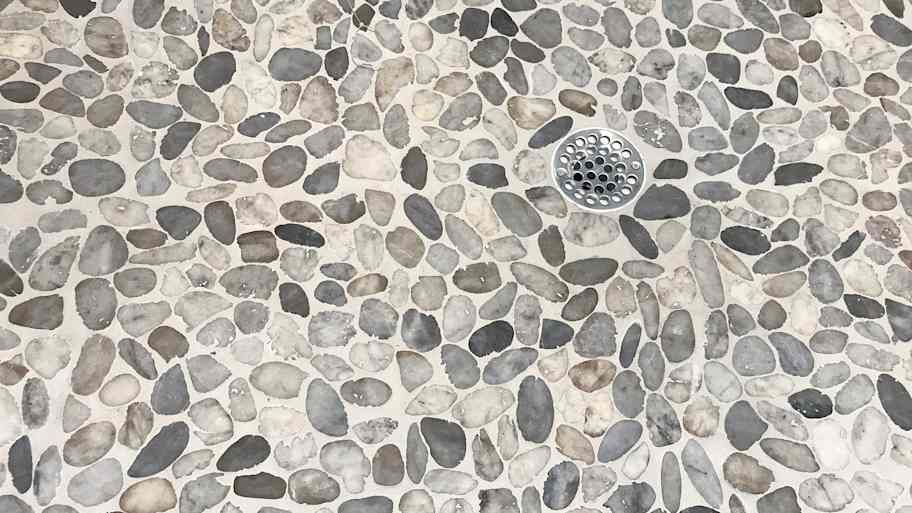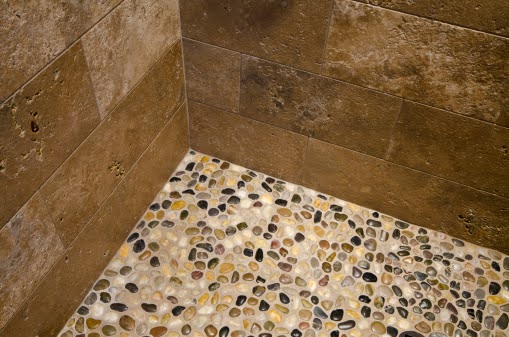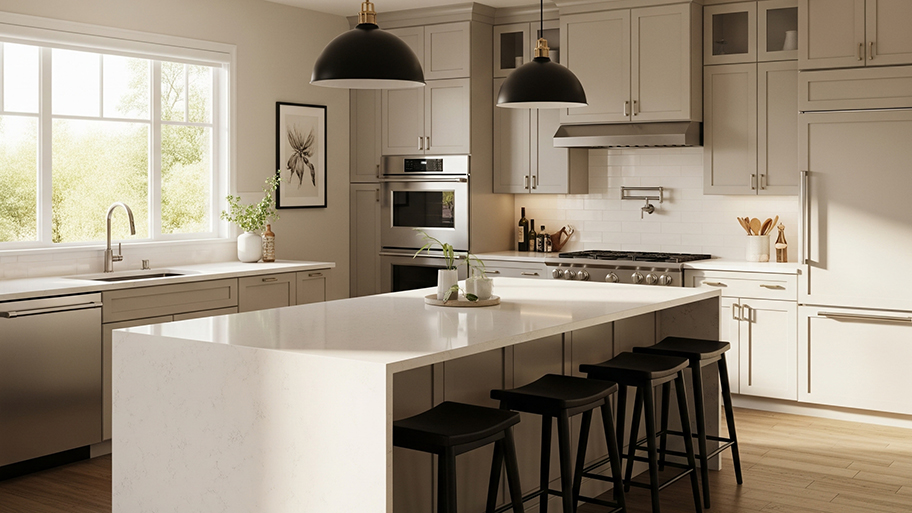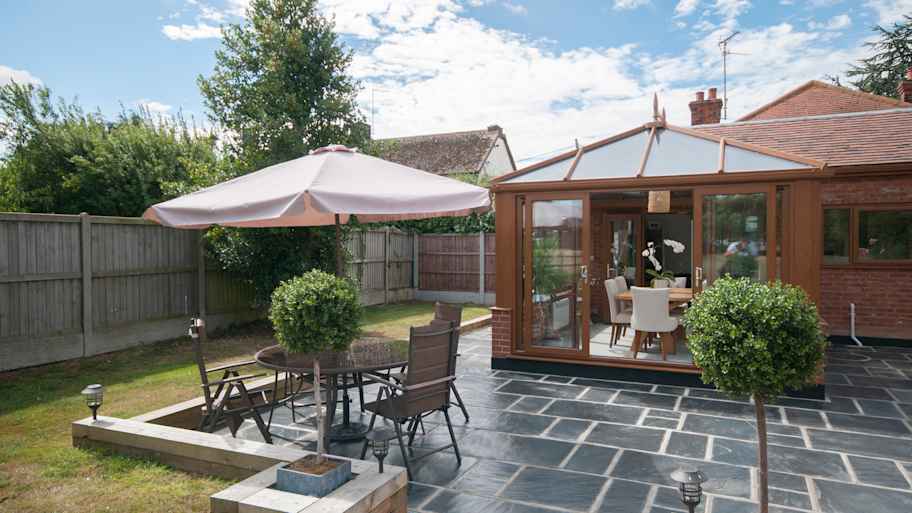
The cost of porcelain countertops is affected by many factors, primarily the material's type (tile or slab) and finish, as well as your counter’s size and shape.
Will pebbles make a perfect shower floor?


Pebble floors can bring an outdoor aesthetic to your bathroom.
Pebble shower floors need regular maintenance, but the stone makes them durable.
Alternative shower floor options include tile, fiberglass, and acrylic.
The uneven surface means this floor isn't a good choice for aging-in-place designs.
A pebble shower floor can bring the outdoors in and create the feeling of standing in a creek bed while you shower. Whether this floor is the best choice for your shower depends on the look you want, how much maintenance you want to do over time, and the needs of those in the home. Let’s take a look at the pros and cons of pebble shower floors, so you can make the best decision for your bathroom.
A pebble shower floor consists of premade tiles of pebble flooring or individual pebbles set into thin-set and finished with grout. It creates a nonslip floor with a natural aesthetic, but it also comes with some cons. A tricky installation process and uneven surface mean that this type of floor isn’t right for everyone. If you hire a tile contractor, they can let you know which tile surface best fits your shower project.
| Pros of Pebble Shower Floors | Cons of Pebble Shower Floors |
|---|---|
| Slip-resistant and durable | Uneven surface |
| Natural aesthetic | Challenging installation process |
| Various sizes, shapes, and colors | High-maintenance requirements |

Pebble shower floors create a stunning natural aesthetic, are slip-resistant, and offer multiple colors, shapes, and sizes to choose from. If you’re considering them, here are some of the advantages.
As opposed to tile flooring that can get slippery when wet, pebbles are naturally slip-resistant, and the extra grout needed to hold small pebbles in place enhances the grip. This makes them a good choice for shower floors. Pebbles are also a durable material, so you won’t have to worry about the stones cracking as you would with some tile flooring. For added durability, you can go with epoxy stone flooring.
If you’re creating a bathroom that brings the outside in, a pebble shower floor can enhance the look. The natural vibe of the pebbles makes it feel as if you’re showering under a waterfall or splashing in a river.
Another benefit to choosing a natural material like pebbles for a shower floor is the variety in size, shape, and color. You can stick with one shade to achieve a monochromatic look or mix multiple shades of light and dark colors. Varying shapes and sizes add interest and give the shower a truly unique design and feel.
Despite their many pros, pebble shower floors also come with some cons. The uneven surface isn’t right for everyone, and installation and maintenance needs mean they might not fit your plans for your bathroom remodel.
While pebble shower floors are slip-resistant, the pebbles vary in size, meaning that the floor won’t be even or level. This gives them a unique visual appearance, but it also makes them potentially dangerous for people with disabilities. Due to the risk of falling on an uneven shower floor, consider leaving a pebble shower floor out of your bathroom design for older adults.
By some accounts, installing a pebble shower floor is an easy DIY project, but the variety in stone shape and size can make it trickier than it seems at first glance. Fitting irregularly shaped stones together and making sure they’re roughly level across the floor can be challenging, so it’s best to get an experienced tile pro involved.
Stone is naturally water-resistant and won’t absorb shower water, but the grout between the stones isn’t if it’s not sealed properly. To keep your pebble shower floor in the best condition and reduce the risk of damaging the subfloor, seal the stones every 2 to 5 years.
As an alternative to a pebble shower floor, you can stick with traditional tile, go with natural stone, or choose a prefabricated option. Here are a few materials you can choose from:
Ceramic tile
Porcelain tile
Marble tile
Slate tile
Fiberglass
Acrylic
A pebble shower floor could be right for you if you’re okay with committing to regular maintenance and making sure the floor is installed and sealed properly. For natural bathroom designs, a pebble shower floor will complement and enhance the space.
However, if people with disabilities or older adults will be using the shower, you may want to lean toward a more even surface. When you build your shower base, talking with a tile contractor near you can help you make the best decision. They’ll assess your space and needs before making a recommendation.
From average costs to expert advice, get all the answers you need to get your job done.

The cost of porcelain countertops is affected by many factors, primarily the material's type (tile or slab) and finish, as well as your counter’s size and shape.

New quartz countertops can give any kitchen a facelift. Find out quartz countertop costs, including quartz slab prices and the cost of installation.

The cost of soapstone countertops varies primarily based on the size of the installation area, the color of the stone, and the type of edging.

Granite countertops last 15 to 100 years based on usage and maintenance. Here’s how long your granite countertops will last and ways to increase their lifespan.

Slate tile offers an upscale, durable flooring option. Our guide explores the pros and cons of slate tile flooring so you can decide if it’s right for you.

There are many types of granite countertops and colors to choose from, including blues, pinks, and greens. The right one can make a stunning statement.